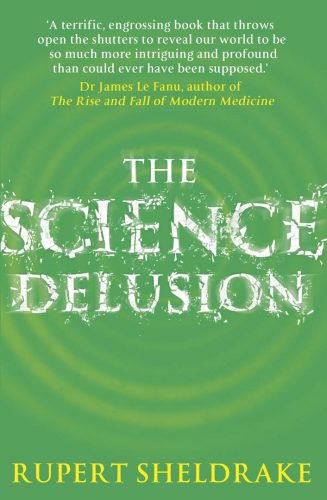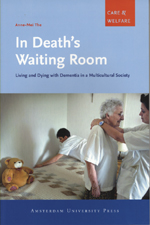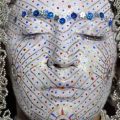Sagittarius 2011
“Assumptions are the mother of all f***-ups” is a quote I really like. It’s from the movie ‘Under Siege 2’, not my normal sort of film. But I definitely agree with the quote. The Sagittarius time of year is a fitting one for looking at how deeply rooted our assumptions and beliefs are. And Jupiter, the planet associated with Sagittarius, has been going backwards for a while. So until he goes forward again on Christmas Day, it’s a fine time to examine the beliefs we may have.
I was reminded of belief systems when I watched a wonderful lecture by Rupert Sheldrake. I have updated the link since the original post. The ‘scientism brigade’ attempted to get this TED talk banned, a cause of much outrage. The link below highlights what he covers in his new book “The Science Delusion” which will be launched in London on the 17th January. I wish I could be there, but that is the day I fly to Australia for a conference.

It is his answer to Dawkins’ ‘The God Delusion’ and he takes on ten dogmas that he sees as being part of the ‘accepted’ scientific view. He covers, among his other pet scientific topics, the beliefs of a mechanistic universe, the state of dark matter, nature and purpose, the mind versus the brain and where memory is stored. However, the one I want to highlight here concerns what he refers to as mechanistic medicine. The dogma being that this is the only medicine that works. This is the accepted wisdom of testing everything from a materialistic point of view. It doesn’t matter how the patient feels or what the experience might be (‘operation successful, patient died’), what matters is a measurable physical effect. And it has to be repeatable.
This is all very laudable of course, but unfortunately, for many scientists, the placebo effect is alive and well. In the US the placebo effect is actually rising. With some tests, placebos are scoring on a par with drugs. According to Sheldrake, one explanation of why this might be the case in the US and not in other countries, is that drugs can be advertised and marketed, which is not allowed in most countries. So there appears to be an effect on belief systems here, and the placebo effect is improving! The mind is capable of wonderful things.
Sheldrake makes the case for comparative effectiveness research. This is where you take a medical problem, apply several types of treatments, and measure what works, also taking the patient’s perspective into account. So this might involve drugs, but also yoga or homeopathy, cranio-sacral treatment or meditation. What has the most effect on the actual complaint? Many people have fixed beliefs about all these treatments. Jupiter’s sign, Sagittarius, can be very judgmental and fixed in opinions. What we need though, to get through the huge challenges in the coming years, is a more adventurous Jupiter. A mind-shift.
This month I attended a very interesting lecture. Dr. Anne-Mei The is a well-known figure in the Netherlands in the areas of palliative care and euthanasia. Her lecture, entitled “Recognise the person with Dementia: Finding the balance between care and cure in palliative care”, gave an interesting history of palliative care but also some quite scary figures concerning what we will need in terms of care for the elderly in the coming years. Dementia is the fastest growing primary cause of death in the Netherlands (and probably other countries). It has been called the epidemic of the 21st century. Dementia covers a range of illnesses of which Alzheimer’s Disease accounts for approximately 70% of all cases. The latest world-wide projections suggest that cases will rise on a global level from around 35 million now to about 115 million cases in 2050. And because people are living longer, this figure is expected to go on rising. Since dementia involves whole families, this means that many more people will be affected. Most countries are ill-prepared to deal with it.
 It is well known that care for the elderly needs improvement. Anne-Mei is one of the few people trying to do this with her companies and her books. “In Death’s Waiting Room” is the English translation of her book on the subject. She has also taken a role in the founding of the Work-Floor Central, a company that aims to improve care, The Martha Flora Houses, which are adopting her concepts for care, and a video website, The Alzheimer Experience, which aims to show what dementia is like from the perspective of the carer, the patient and the family. This is very moving viewing which is currently only available in Dutch.
It is well known that care for the elderly needs improvement. Anne-Mei is one of the few people trying to do this with her companies and her books. “In Death’s Waiting Room” is the English translation of her book on the subject. She has also taken a role in the founding of the Work-Floor Central, a company that aims to improve care, The Martha Flora Houses, which are adopting her concepts for care, and a video website, The Alzheimer Experience, which aims to show what dementia is like from the perspective of the carer, the patient and the family. This is very moving viewing which is currently only available in Dutch.
But despite all efforts to improve things, figures suggest that we will need a quarter of school-leavers to choose to work in the care field, whether they are suited to it or not, if the need is to be covered. I found this really shocking. Anne-Mei also gives her vision of how different groups need to work together. She is an advocate of developing a strategy and doing more research. And she says: “We ask people with dementia, who have lost the grip on reality, to live within our world. But this should be the other way around. We should develop methods to help us experience their world.”

Drugs cocktail
When I was pondering this lecture I thought two things. Astrology must be able to help with its archetypes. This seems to me like a Neptunian illness, very similar to what is happening at the ‘young’ end of the scale. Children who are labelled as autistic, or as having attention deficit or being uncontrollable are being filled with drugs to make them fit into our world. Maybe it’s us with the problem – what do we do if we can’t reach people by our usual means? This is what we need to learn now, with so many people spending time in other ‘worlds’. We need to develop new capacities. Neptunian ones. But more on this in another post.
I also thought – why do we assume this has to happen? Assumptions again. Jupiter at work – negatively. Perhaps we need the mind-shift I spoke of earlier. I have read many claims of homeopathy helping in dementia, or touch, or involvement, or different diet. And many other forms of alternative treatments. I have even read that many Alzheimer brain autopsies show the Lyme disease bacteria to be present. Can we please do what Sheldrake suggests and give some substantial funding to comparative effectiveness research? The focus in treatment for dementia is not necessarily on cure, but it could be – if we use Jupiter wisely. Long-term care patients are not going anywhere. Surely they make an ideal study group?
Faye Blake-Cossar
Interesting Websites of the Month
English sites:
“A life Beyond” A wonderful short film about Alzheimers by Nick Askew.
Rupert Sheldrake’s TED talk which they attempted to ban! (Published after this original post – covers same material)
Dutch sites:
Download the Rede van Anne-Mei The.
Quote of the Month

From I sign I spotted while driving near Santa Fe.












